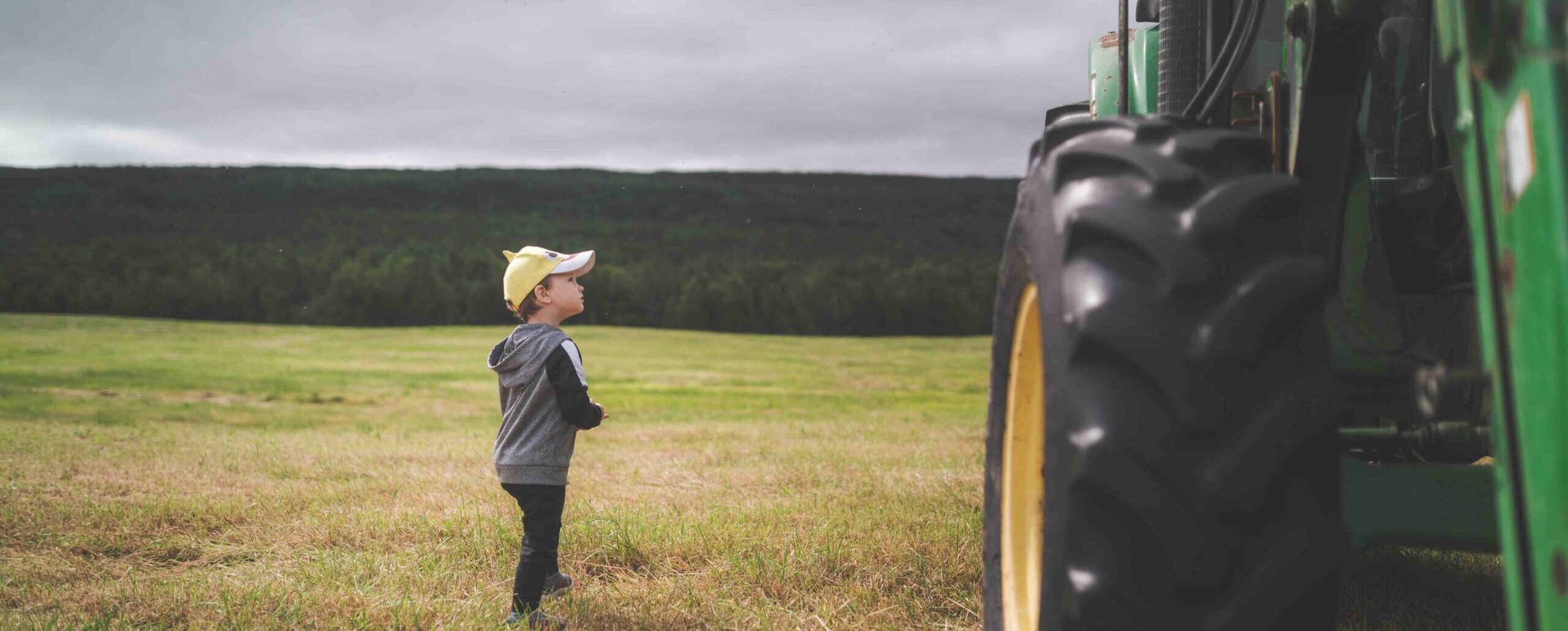Lifelong lessons in work ethic are often learned as a kid bailing hay on hot summer days. It’s summer, the kids are out of school, and many are looking for summer jobs. It’s a good time to take inventory of the measures agricultural operators need to take to keep minors safe and stay in compliance with state and federal child labor laws. In addition to the federal child labor laws discussed herein, there are likely additional state laws that should be fully explored and familiarized prior to employing a minor in an agricultural operation.
When hiring youth to assist with farm chores, there are various factors that can affect what duties a minor may or may not legally perform. Prudent operators would certainly never intentionally assign dangerous farm tasks to minors. However, what the law considers “hazardous” may vary from even the most reasonable operators’ idea of dangerous. For instance, the law very specifically addresses whether a minor may assist with, or even ride on a tractor. Other common tasks such as feeding bulls, checking on calving cows, and spraying weeds or spreading fertilizer may or may not be permissible, depending on a number of factors.
The duties that a minor may perform on an agricultural operation varies depending upon their age. Under the Fair Labor Standards Act (“FLSA”), children under the age of 12 must have parental consent to work on a small farm (as defined by FLSA) and are exempt from federal minimum wage provisions. Children the age of 12 or 13 may work with parental consent or where the child’s guardian is also employed. If 14 years of age, a minor may work without parental consent but only in non-hazardous agricultural jobs. Once a minor reaches the age of 16, they may perform any farm job including those deemed hazardous by the Secretary of Labor. Minors that are 16 or older may also work at any time, including during school hours, while youth under age 16 may only work outside of regular public school hours, even if home schooled, unless employed by their parents or guardian. There are also limitations on the number of hours minors may work, depending upon their age and whether school is in session in the local public school district.
The Secretary of Labor has identified 11 categories of duties deemed “hazardous” that minors under the age of 16 may not perform. Those range from operating a tractor with over 20 PTO horsepower to entering a pen or yard with male breeding stock or with pigs or cows that have recently given birth, to handling agricultural chemicals which include the word “danger” or “poison” with skull and crossbones or “warning” on the label. A full list of these hazardous activities as well as other federal laws regarding the employment of minors in agriculture, can be found in the U.S. Department of Labor’s (“DOL”) Child Labor Bulletin 102. Exemptions to these hazardous activity prohibitions may apply to minors employed by their parents or enrolled in certain formal training or vocational programs.
While federal law does not require a work permit for minors employed in agriculture, some states may require one. The DOL maintains a comparison of federal and state requirements of child labor laws that is searchable by state here. However, even where not required, it may be prudent to request a state issued age certification in order to protect employers from unintentional violations of the federal age requirements.
There may be no better place to learn the value of hard work than a farm or ranch. When providing opportunities to minors, be prudent, ensure you’re in compliance, and keep our youth safe. Don’t forget to keep the lemonade flowing.
Friedel, Jen. “What to Know About Employing Minors in the Summer and Beyond.” Southern Ag Today 3(25.5). June 23, 2023. Permalink
Photo by Stephen Andrews

